Health & Tips
Keep Yourself Hydrated This Summer: Key Advice for Staying Cool and Well

Keep Yourself Hydrated This Summer: Key Advice for Staying Cool and Well
Summer brings sunshine, holidays, and outdoor activities, yet the increasing heat can swiftly cause dehydration if precautions aren’t taken. Lack of hydration may lead to tiredness, faintness, migraines, and potentially heatstroke. Consequently, keeping hydrated is essential for preserving optimal health and energy during the warm months. Here are a few important suggestions how to Keep Yourself Hydrated This Summer.
1. Drink Plenty of Water
Water is the most straightforward and efficient means of maintaining hydration. Strive to consume a minimum of 8-10 glasses of water daily, and boost your intake if you are outdoors for extended periods or participating in exercise.
2. Eat Water-Rich Foods
Staying hydrated isn’t solely about consuming water—selecting the appropriate foods can assist as well. Include water-rich fruits and vegetables in your meals, like:
- Watermelon
- Cucumbers
- Oranges
- Strawberries
- Lettuce
- Tomatoes These foods contain high water content and essential nutrients that help replenish lost fluids.
3. Infuse Your Water for a Refreshing Twist
Regular water may become dull over time, so consider adding natural flavors to enhance it. Incorporate slices of lemon, cucumber, mint, berries, or oranges into your water for a refreshing and tasty beverage. Herbal infusions and coconut water serve as excellent options to stay hydrated without using artificial sweeteners.
4. Avoid Dehydrating Drinks
Some drinks can indeed lead to dehydration, including:
- Sugary sodas
- Alcohol
- Caffeinated drinks like coffee and energy drinks While you don’t have to eliminate them completely, try to balance them with plenty of water and hydrating fluids to prevent dehydration.
5. Choose Refreshing Drinks
Chilled, revitalizing beverages can aid in managing your body temperature and maintain your sense of freshness. A few excellent options are:
- Fresh coconut water
- Iced herbal teas (such as peppermint or hibiscus)
- Natural fruit juices (no added sugar)
- Buttermilk or lassi (a classic yogurt-based beverage)
6. Stay Indoors During Peak Heat Hours
The sun reaches its peak intensity from 10 AM to 4 PM, increasing the risk of dehydration if you spend extended time outdoors. Strive to remain in shaded or air-conditioned spaces during high temperatures, and if you need to venture outside, dress in light garments, a hat, and sunglasses to shield yourself from extreme heat exposure.
7. Regulate Electrolytes
Sweating leads to the loss of vital minerals in your body, such as sodium, potassium, and magnesium. To keep your electrolyte balance, add hydrating beverages such as sports drinks (in moderation), coconut water, or DIY electrolyte mixes made with a dash of salt and sugar in water. You can additionally consume foods high in potassium such as bananas and avocados.
8. Keep Your Skin Hydrated
Hydration is not only internal—it’s external as well! Apply a hydrating mist, aloe vera gel, or light moisturizers to prevent your skin from becoming dry in the summer warmth. Enjoying cool showers and donning breathable materials can aid in keeping you comfortable and revitalized.
9. Monitor Hydration Levels
An easy method to determine if you are hydrated is by examining the color of your urine. Pale yellow or transparent urine suggests proper hydration, whereas dark yellow or amber urine may indicate a need for increased fluid intake.
Final Thoughts
Keeping hydrated during summer is crucial for preserving energy, concentration, and overall health. By consuming sufficient water, eating foods with high water content, and steering clear of dehydrating beverages, you can stay cool and revitalized throughout the season. Prioritize hydration and have a joyful, healthy summer!
Do you have any preferred tips for staying hydrated? Post them in the comments section below!
Beauty Tips
Anti-aging Home Remedies at Low cost
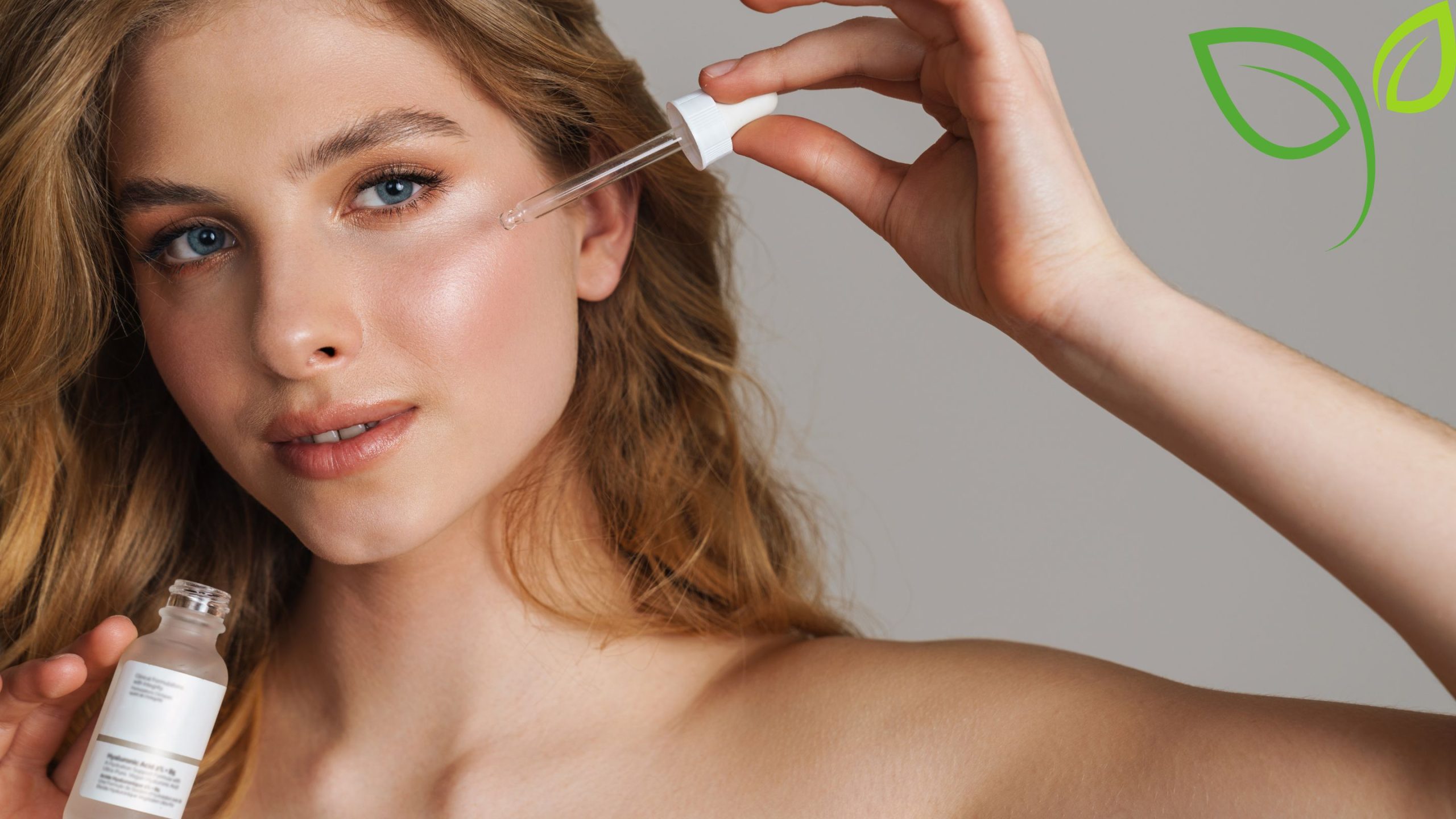
Anti-aging Home Remedies at Low cost
Anti-aging home remedies can minimize the cost of fancy products. Some simple lifestyle habits and some simple ingredients in your kitchen to keep aging signs in check.
On top of that, your wallet is hemorrhaging money. In this blog, I’ll share some cheap, natural ways to reduce your wrinkles, increase your skin’s elasticity, and give your skin new life all without spending a fortune.
Home Remedies are better than Anti-Aging why?
Affordable: The majority of the remedies actually use easy to obtain ingredients.
Natural: And they’re safe for nearly all skin types, with none of that harsh chemical stuff.
Holistic: All of these remedies nourish your skin, and health as well.
Top 8 anti aging home remedies at low cost.
1. Aloe Vera Gel
Aloe Vera has antioxidants, vitamins, enzymes and other such nutrients which help hydrate the skin better elasticity and eliminate wrinkles.
How to Use:
- First, get some new fresh aloe vera gel out of a leaf.
- Rub into your face and neck.
- Let it stay on under some lukewarm water for 20 minutes, then rinse.
- Use daily for best results.
-
Coconut Oil
Coconut oil is rich in fatty acids, a natural moisturizer and can repair your skin barrier and help fade fine lines.
How to Use:
- For this take a few drops of extra virgin coconut oil.
- When warmed, massage it between your fingers and then massage it into your skin.
- With one overnight application, depth hydration is achieved.
-
Honey and Lemon Mask
Vitamin C for the brightening and evening of your skin tone is available in lemon juice and honey hydrates and nourishes your skin.
How to Use:
- 1 tablespoon honey and few drops of lemon juice is mixed.
- Apply it on your face, but don’t put it under your eyes.
- Rinse with warm water and leave it on, 15 minutes.
- Use 2-3 times a week.
-
Cucumber Slices
The high water content in cucumber hydrates the skin and also soothes and refreshes your skin with antioxidants.
How to Use:
- Slice a cucumber, then chill it.
- Place the slices on your face in the areas that you want to cut down on wrinkles or puffy skin.
- Relax for 10-15 minutes.
-
Egg White Mask
We all know that egg whites work skin tight to remove sagging skin and fine lines.
How to Use:
- Whip an egg white till foamy.
- Place it on your face, and let it dry all the way.
- Rinse off with cold water.
- For firmer skin, use once a week.
-
Banana and Yogurt Pack
They’re particularly good, banana and yogurt full of vitamins and minerals that feed the skin and lactic acid to exfoliate and brighten.
How to Use:
- Mash half a ripe banana with 1 tablespoon of yogurt; mix it all together.
- As you apply mixture to your face.
- Wash it with lukewarm water and leave it on for 20 minutes.
-
Turmeric and Milk Paste
So the skin was being softened and tanned with lactic acid in milk and turmeric for its anti inflammatory and antioxidant properties.
How to Use:
- You can mix and have 1 tsp of turmeric powder and enough of milk to make an paste.
- It applies it evenly to your face and neck.
- Wash it off after 15 minutes.
- Use once a week.
-
Green Tea Ice Cubes
Antioxidants abound in green tea to stall the production of free radicals and thus delay signs of aging.
How to Use:
- If the tea is green, which means it is to be brewed green, but then cupped, this makes the tea drinkable.
- I freeze it into an ice tray and put it into the freezer.
- For a refreshing and a tightening effect, use a green tea ice cube over your face.
- For anti aging benefits, lifestyle tips are the best choice to get the job done.
For anti aging benefits, lifestyle tips are the best choice to get the job done.
-
Stay Hydrated
Regular water drinking of 8 or more glasses of water a day, helps keep your skin hydrated and flush out toxins.
-
Eat Antioxidant-Rich Foods
Eating berries, spinach, nuts and fatty fish can help you battle free radicals and increase collagen.
-
Get Enough Sleep
These precious hours slept in, your skin is busy healing. Sleep 7–8 hours every night at high quality.
-
Practice Facial Massage
Face massage is known to promote blood flow, tighten muscle and produce collagen. For a relaxing massage, the best ones to use are natural oils like, almond or olive oil.
-
What You Can Do to Keep Your Skin Safe from the Sun
The faster you are old, the more you exposed to sun. The fact is that if you’re next to a window whether inside or not, you should wear a broad spectrum sunscreen at all times.
-
Exercise Regularly
For overall health and look of your skin, all of this is primarily done through being physically active, which helps to increase circulation.
The Power of Consistency
These are cheap and easy remedies that only really work if done consistently. You include them into your schedule and let it occur to your skin – skin as responsive as it can be.
Conclusion
Anti-aging skincare doesn’t need to cost you if you don’t want to pay for fancy creams or invasive treatments! By including these low cost home remedy and healthy habits into your regiment, they will keep you securing young, glimmering and wonderful looking skin for the greater part of your life.
Aging is a beautiful journey and no other healing exists better than self care and confidence in every stage of life!
Beauty Tips
How to Prevent Dandruff: Effective Tips and Remedies 2024

How to Prevent Dandruff: Effective Tips and Remedies
How to Prevent Dandruff? Now-a- days this is a common question of many people. Millions suffer from dandruff, the flaky nuisance on your scalp. Often it’s embarrassing, and sometimes even uncomfortable, or can even cause hair loss, if not taken care of. The good news, though, is that you don’t have to live with this forever. Banning dandruff and getting your scalp health back is a possibility if you use the right remedies and care.
What Causes Dandruff?
Common causes of dandruff include a dry or oily scalp, fungal infection or an overproduction of skin cells. Some common triggers include:
Malassezia fungus: Can be an irritating yeast that is naturally occurring.
Dry skin: In colder months, dryness can make flaking worse.
Seborrheic dermatitis: A more serious condition characterized by red, greasy patches.
Product buildup: Over doing it using too many styling products and not cleansing properly.
Tips for How to Prevent Dandruff
-
Use Anti-Dandruff Shampoos
Quick fix is over the counter anti dandruff shampoos. Look for these active ingredients:
Ketoconazole: Fungal infections are the best it can provide.
Salicylic Acid: It helps to remove the dead skin cells and reduce scaling.
Zinc Pyrithione: It’s also good at reducing fungal growth and sooths irritation.
Coal Tar: It slows down production of skin cells.
How to Use:
- Shampoo your scalp and leave it on for 3–5 minutes then rinse.
- Use as often as you can, but not too frequently, as you don’t want it to dry your scalp out too much.
-
Keep Your Scalp Moisturized
- They may also continue to produce more flakes when your scalp is overly dry. Use lightweight oils such as coconut oil or jojoba oil to hydrate your scalp:
- Add some oil to the warm and massage it into the scalp.
- After 30 min or overnight leave for overnight then wash off with a gentle shampoo.
-
Maintain Good Hygiene
Regular wash your hair to remove product buildup, sweat and dirt. But it’s important to use enough soap, without over exposing the scalp, so as not to strip the scalp of natural oils, further inflaming the situation.
4. Try Natural Remedies to Prevent Dandruff
Apple Cider Vinegar (ACV):
- Use an equal parts mix of ACV and water.
- After which, you apply the solution to your scalp and leave it for 15–20 minutes.
- Rinse with lukewarm water.
- ACV balances scalp pH and prevent fungal growth.
Tea Tree Oil:
- You should add a few drops of tea tree oil in your shampoo.
- Alternatively, you can dilute it by using a carrier oil, and apply it to your scalp directly.
- The property of antifungal and antibacterial reduces dandruff.
Aloe Vera Gel:
- Freshly aloe vera gel directly over your scalp.
- Rinse after 30 minutes.
- Aloe vera calms your scalp irritation and hydrates your scalp.
-
Exfoliate Your Scalp
Like your skin your scalp does benefit from exfoliation. To remove dead skin cells and enhance blood circulations, use a kind of sterile scrub that will consist of sugar and olive oil.
-
Eat a Balanced Diet
- Scalp health does have a lot to do with your diet. Include: Foods rich in zinc, such as nuts, seeds and whole grains.
- Egg, milk, Leafy greens are vitamin B sources.
- Dryness can be reduced by omega 3 fatty acids found in fish and walnuts.
When to See a Dermatologist?
If you’ve tried everything and dandruff is still a problem, see a dermatologist. If symptoms last for more than six weeks, or if they seem to be related to severe flaking or chronic dandruff, check with your doctor since it may be related to psoriasis or eczema.
Final Thoughts
You don’t have to live with dandruff. With the knowledge of it’s causes and the inclusion of appropriate remedies within your routine, you can have a healthier, flake free scalp. This is all about consistency so use methods that suit you and take care of your scalp.
Supporting you as I learn about this, with patience and persistence, we can say goodbye to dandruff and hello to a confident, itch free you!
Feel free to email me if you would like some more tips, or if you prefer a more tailored approach!
Health & Tips
Importance of Meditation: A Simple Way to Inner Peace
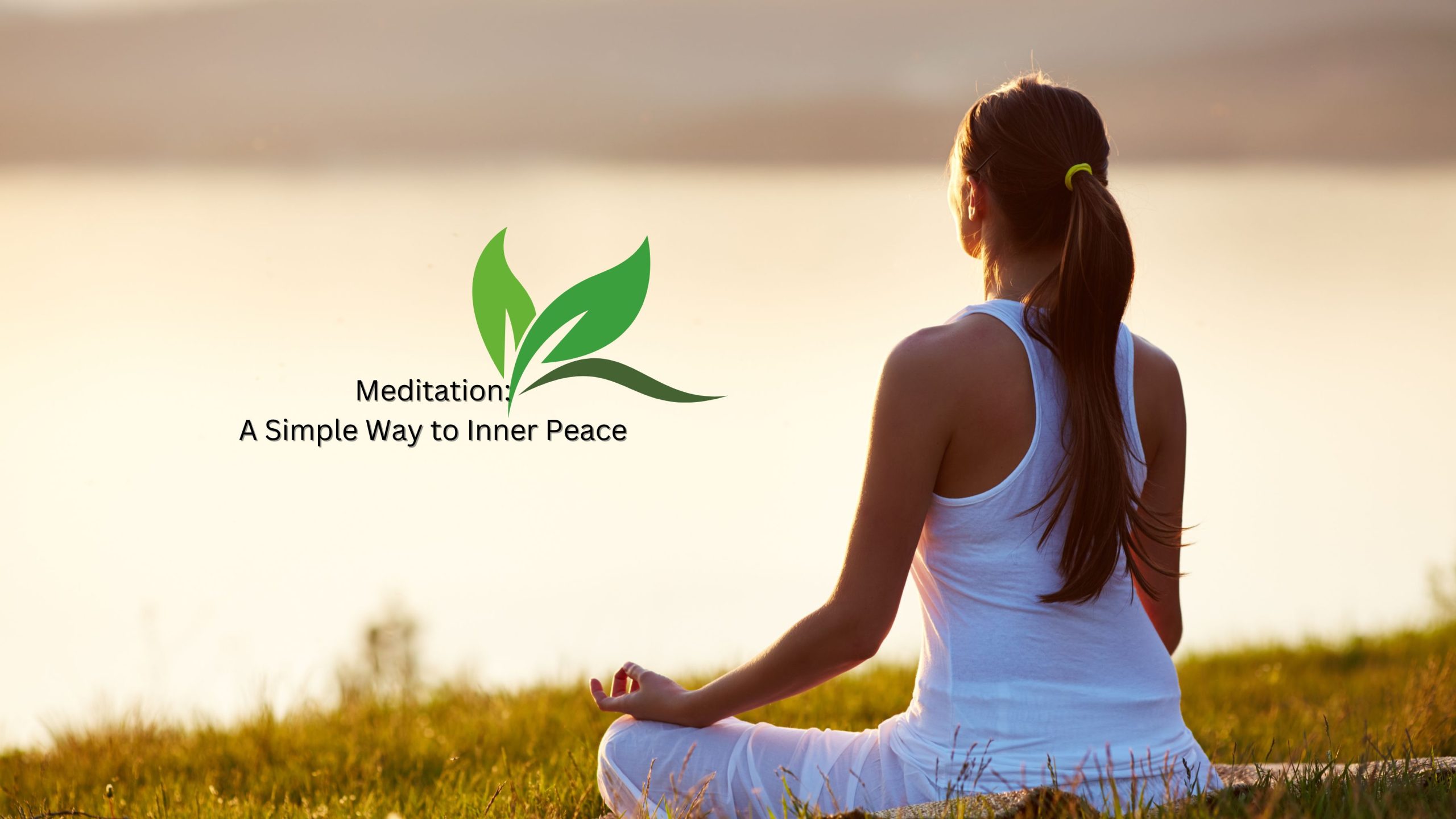
Importance Of Meditation: A Simple Way to Inner Peace
Every one of us lives so hurriedly and can not find calm and focus. An ancient practice, meditation, is present in the cultures of many peoples and provides a solution. Meditation is training for the mind to focus and to clear distractions, offering a way of mind calm and emotional calm. We will discuss about the importance of meditation below.
Why is meditating important?
Meditation is not just an exercise of the mind; it does benefit the mind and the body. Here are some compelling reasons to start:
Reduces Stress and Anxiety
Meditation reduces cortisol, the stress hormone, cutting down on anxiety and inviting a sense of calm.
Boosts Focus and Memory
Learning to meditate, concentrating on one point, improves focus and increases productivity, as well as memory.
Promotes Emotional Health
This means meditation leads you to be more self-aware, which allows you to know how to deal and control your emotions, leading to better resilience.
Improves Physical Health
Meditation has been shown to lower blood pressure, improve sleep quality and strengthen the immune system, according to studies.
Deepens Self-Connection
It is a way to find out your level one, as it can help you attain greater self acceptance and purpose.
How to Start Meditating
For beginners, starting a meditation practice may seem intimidating, but it’s easier than it appears:
Start Small
Start with 5-10 minutes daily, and as you get more used to it, increase it.
Choose a Quiet Spot
Look for a place that you won’t be interrupted in so you can get a little private time. Comfort makes it comfortable and soft lighting or soothing elements.
Pick a Technique
The practice of meditation has many different styles. For beginners, guided meditation is something they enjoy, mainly (1) because it provides structure and direction. Go with apps such as Headspace or Calm.
Focus on Your Breath
One way to meditate is to pay attention to your breathing. Notice your breath coming in, then out; respond to each inhale and each exhale in a natural, relaxed way.
Be Patient
It is to clear your mind completely that meditation is not about. The idea is to allow thoughts to pass, and if you can’t do that, gently bring your focus back.
Incorporating Meditation into Your Daily Life
Morning Meditation: It is always wise and helpful to begin your day with a clear headed and focused heart.
Evening Meditation: Relaxation has to do with improper preparation for sleep as well as facilitation for proper sleep.
Mindful Breathing: Breathe consciously during the day to lower your stress levels.
Meditation Apps: There are also applications that can help you monitor your progress, such as applications with guided meditations.
Consistency: Pick out a precise instant of your day to do this, morning to commence your day with focus, or night to de-stress, and confirm that in your day-to-day schedule. This time a few minutes can mean the difference.
Always bear in mind that the importance of meditation has no aim of making you perfect but simply to make you better over time. The time spent regularly can help learn the many benefits that come with practicing yoga and lead a much more peaceful life.
Meditation is a very powerful yet gentle tool for inner peace and clarity; for emotional resilience. It doesn’t require perfection, just your showing up. Consistency and patience can lead to meditation being a way to calm and take of mindfulness in your daily life.
Ready to start? Going forward, you might be able to unlock a more centered, peaceful self just within a few minutes.
-

 Lifestyle11 months ago
Lifestyle11 months agoJubilation in Bangladesh: Unity in Culture and Progress 2024
-
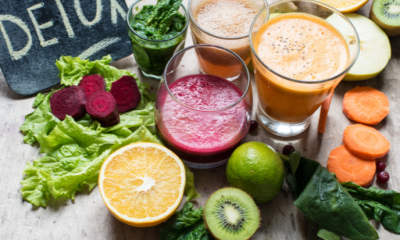
 Health & Tips11 months ago
Health & Tips11 months agoDetox Juice for Weight Loss: A Refreshing Way to Start Your Day
-
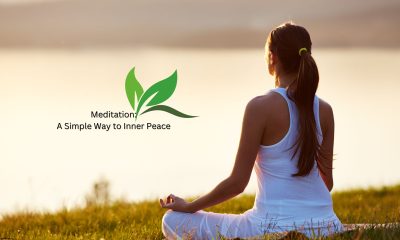
 Health & Tips11 months ago
Health & Tips11 months agoImportance of Meditation: A Simple Way to Inner Peace
-
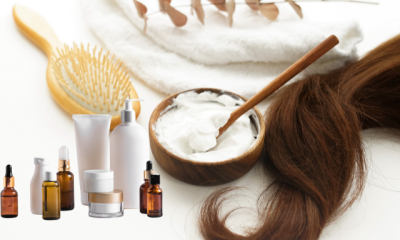
 Beauty Tips11 months ago
Beauty Tips11 months agoএই শীতে চুলের যত্ন কিভাবে করবেন ?
-

 Beauty Tips10 months ago
Beauty Tips10 months agoAnti-aging Home Remedies at Low cost
-

 Fashion11 months ago
Fashion11 months agoFashion Trends in Bangladeshi Apparel
-
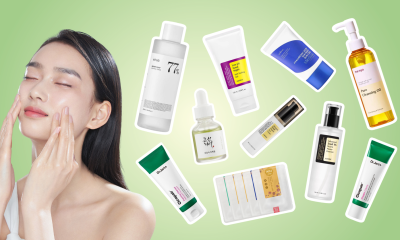
 Beauty Tips11 months ago
Beauty Tips11 months agoSkin Care Tips For Winter Season in Bangladesh
-

 Fall/Winter11 months ago
Fall/Winter11 months agoWinter Fashion Trends in Bangladesh












